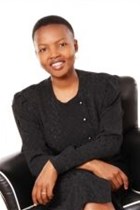
In 2016 and 2017 I embarked on a journey to win the Qualitative Research Consultants Association Global Outreach Scholarship in the USA. This journey was important to me because I was in pursuit of new ideas and new ways of doing consumer intimacy. Global recessions have impacted key industries, budgets are being cut and clients are looking for more at half the price. The current economic climate is a challenge to us researchers to say, ‘can we still continue to offer the same service to deal with new client problems?’.
Are we as researchers in tune with client needs?
The challenge for us now is providing front row seats to intimacy, more frequently, faster and cheaper without any compromise to the quality. In the information age and heavy consumption of social media, consumer trends and needs are constantly evolving, and clients want front row seats to this evolution. Our 6-8-week timelines at times, find us delivering yesterday’s solutions to today’s problems.
So, what did I learn on this trip to the QRCA conference in the USA?
As researchers, we need to remain flexible. We need to work backwards in answering the question of, ‘what is the client problem and what is the best way to get to the solution?’. Most often, the box of methodology limits the possibilities of getting the client to front row seats. Are focus groups behind the two-way mirror the best channel to achieve intimacy? Is the pressured two-hour session of 8 respondents averaging 12 mins per respondent in a group the best deal for most client problems in today’s context?
The answer is both yes and no. The no is where we need to focus.
The no, means that we need to ask the question of how else can intimacy be achieved? Where is the front row? Focus groups are riddled with challenges of high costs, unnatural setting, intimidating environment for the bottom of the pyramid consumers, consumers not showing up and the list continues. The methodology should not lead the problem, but the problem should lead the methodology.
When we use this approach, we start to open ourselves up to a wider range of options.
Research needs to move to where the consumer lives and plays. We need to spend less time yanking consumers out of their natural environment and placing them in glass bowls for observation. We need to engage less with respondents but more with human beings. With the rise of consumer resistance to brands that do not emotionally connect or resonate as seen in recent cases of H&M, Dove, MiWay, 702 etc… we really need to relook the approach.
This resistance is a cry from consumers seeking recognition as emotional beings rather than markets, consumers, respondents or subjects. It’s food for thought for the industry. Can we truly achieve intimacy with subjects observed from a glass bowl?
Change is inevitable. As markets evolve and competition tightens, clients will demand more from us.
